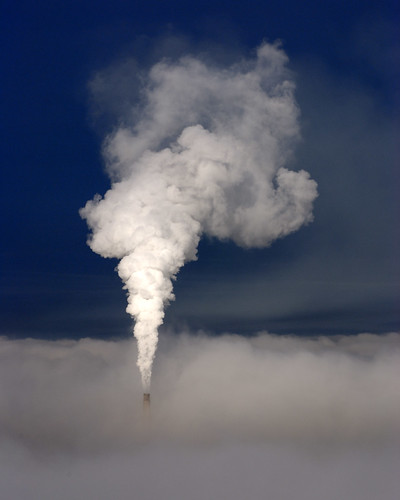Climate change 'to hit poor hard'
The poorest people in the world will be hardest hit by the effects of climate change, experts at a major conference on global warming have said.
The warning came ahead of the publication of a key report on climate change by hundreds of environmental experts from around the world.
Agreement on the report was reached after days of debate in Brussels.
The report concludes climate change is already having major impacts on the natural world.
The Intergovernmental Panel on Climate Change (IPCC) believes there is also a discernible, though less marked, impact on human societies.
Objections
 Outlining the report's findings, Dr Martin Parry, co-chairman of IPCC Working Group II, said evidence showed climate change was having a direct effect on animals, plants and water.
Outlining the report's findings, Dr Martin Parry, co-chairman of IPCC Working Group II, said evidence showed climate change was having a direct effect on animals, plants and water.
"For the first time, we are no longer arm-waving with models; this is empirical data, we can actually measure it," he told a news conference.
Dr Parry outlined the four areas of the world now thought to be the most vulnerable to climate change.
"The arctic, where temperatures are rising fast and ice is melting; sub-Saharan Africa, where dry areas are forecast to get dryer; small islands, because of their inherent lack of capacity to adapt and Asian mega-deltas, where billions of people will be at increased risk of flooding," he explained.
As a result, the most severe impacts will be felt by the world's poorest countries, the report says.
"The poorest of the poor in the world... are going to be the worst hit and are the most vulnerable in terms of impact of climate change," said IPCC chairman Rajendra Pachauri.
Mr Pachauri said those people were also the least equipped to deal with the effects of such changes.
Year of reports
Scientists and government officials from more than 100 countries met through the night, trying to agree on the wording of a summary for policy makers.
Several delegations, including the US, Saudi Arabia, China and India, had asked for the final version to reflect less certainty than the draft.
The report will be sent to world leaders in time for a G8 summit of industrialised nations in June.
It is the second in a series of IPCC reports coming out this year, together making up its fourth global climate assessment.
The first element, on the science of climate change, released in February, concluded it is at least 90% likely that human activities are principally responsible for the warming observed since 1950.
The third part, due in May, will focus on ways of curbing the rise in greenhouse gas concentrations and temperature.
A fourth report in November will sum up all the findings.

